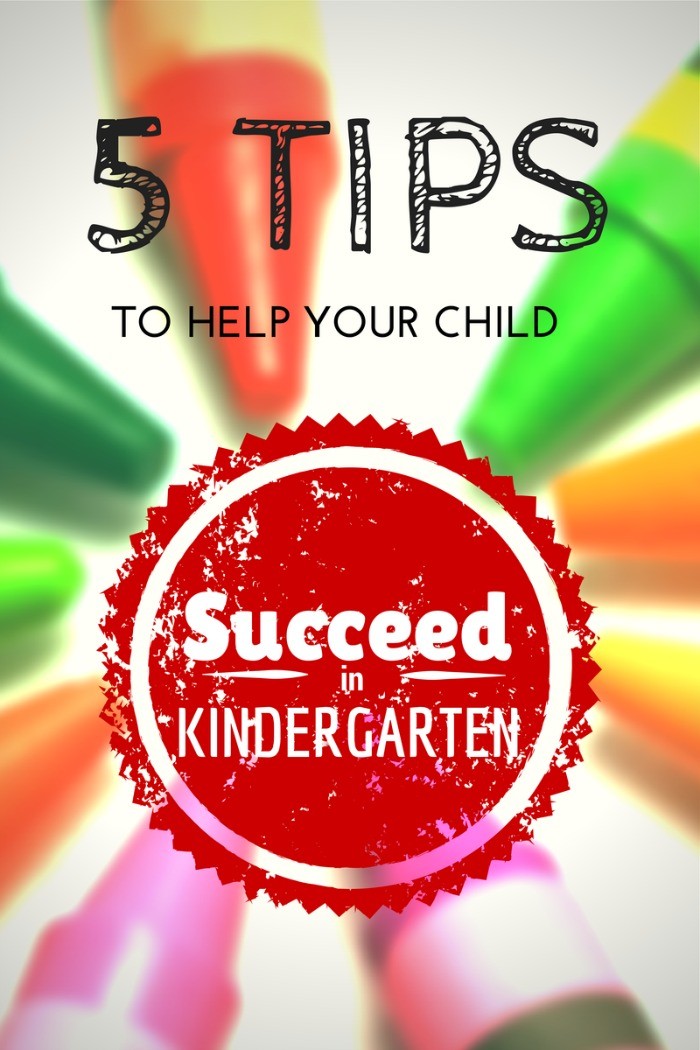Our littlest just finished kindergarten.
School can be complicated for parents and kids alike, especially if you are sending your little one off to school for the first time. There are ways you can help your child succeed in school, no matter their grade or your expertise with school-aged children.
If you have a child going into Kindergarten this year, the following five points will help you help your little one succeed in Kindergarten.
Common Core Standards Expectations
Common core focus will be on representing and comparing whole numbers, describing shapes and space, and learning how to write and read basic sentences. They will be introduced to basic addition and subtraction, and will be expected to show equations using objects. They will be expected to count to 100 and compare and contrast objects. They will be tested on colors and the alphabet, as well as letter sounds and functions. They will also need to draw pictures to show stories.
How you can help your little one succeed in Kindergarten
Practice basic skills at home.
Social Skills
Kindergarten is full of wonder and new experiences.
This is where kids will be expected to learn to follow directions, learn boundaries with children and adults, and learn how to obey rules. They will need to learn to work with one another and independently, as well as play in groups, pairs, and alone. They have to learn to transition into new topics and situations during the day, and follow a schedule.
During all of this, they will be monitored on how their attitude toward learning progresses. It is a lot of stress, especially for a child that has never been in a traditional learning environment.
How you can help
As a parent, you can go over these things with your child daily and encourage them to be independent, even of you, and to listen to their teacher and school officials. Get involved with homework and classroom events to help them feel secure.
Physical Development
Children in this grade are full of energy, and that needs to be encouraged by physical play. Many Kindergarten lessons will incorporate play because that’s how children learn, and because the teachers will be looking at your child’s motor skills and physical development. In Kindergarten, your child will experience:
- Developing visual motor skills and hand-eye coordination
- Practicing proper writing posture and pencil grip
- Printing letters and numbers within defined spaces
- Practicing correct letter formation
- Cutting straight and curved lines
- Writing first and last name, using a capital letter followed by lowercase letters
- Tracing
- Coloring inside the lines
- Maneuvering their own zippers, buttons, etc.
- Throwing and catching a ball
- Balancing
- Jumping (one and two feet)
- Skipping
- Running
How you can help
To help your child with these things, practice at home.
Emotional Development
Kindergarten children learn to regulate their emotions and social interactions daily.
How you can help
To help them learn about emotions and how to properly express them, allow them to participate in activities involving problem solving. Give them opportunities to play with other children and adults. Teach them how to make and keep friends, and model friendships to them with your own friends. Discuss feelings such as anger, happiness, guilt, and sadness. Teach them what you expect from them in social situations and give them opportunities to talk to you about their feelings.
Children at this age tend to be confident and eager to be involved and have responsibility. Give it to them! They enjoy going places and doing things, so take them out often on adventures. Help them build their confidence and sense of responsibility while they are so eager to do so.
Intellectual Development
Kindergarten children develop rapidly in the intellectual department, and this can lead to a lot of frustrations for them. Now, more than ever, they need you to be an advocate for them and to help them with learning. Kindergarteners also like to talk a lot because they are so excited about what they are learning.
How you can help
Support this and their excitement by talking to them about their days at school, what they’ve learned, and just about anything else. They want you to talk to them just as much as they want to talk to you!
There are some great math apps and free online resources available these days for rainy days, that can help your child learn.


1 comment
My son is getting to the age where it is time for him to go to Kindergarten. I am glad that you mentioned ways to prepare him to develop his social skills. I want my son to be very independent and have ease with meeting other children. Talking about it ahead of time is a really good idea to see how he feels. Thanks for the tip!